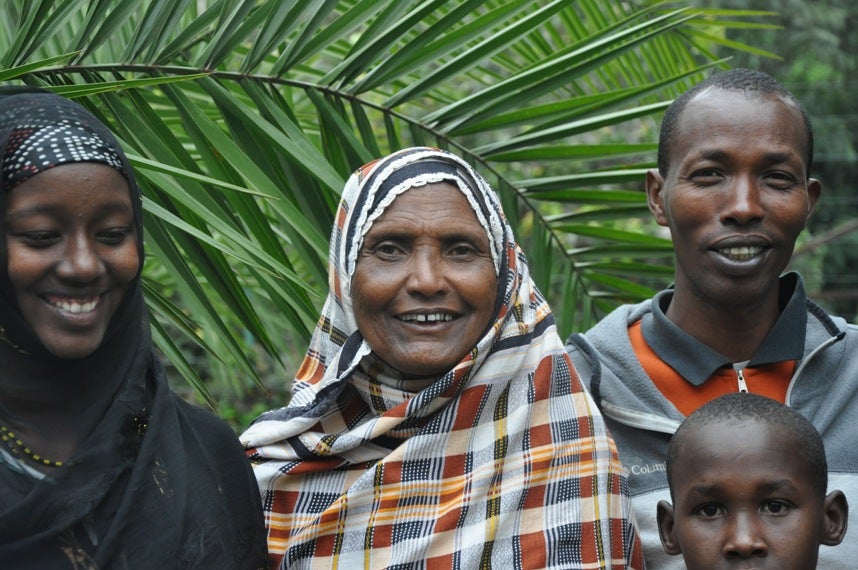
In the Nairobi slum of Kawangware, people like Said, 33, are struggling to help relatives fleeing the drought in Somalia. The full-time gardener and father of four is providing refuge to his mother, Zeinab Lebon, 65, and six other relatives. All share his family’s two bedrooms of 144 square feet each, and he now supports 12 people on one salary.
“We do not have water or toilet; I have to pay every day 1 Kenya schilling for every person for the toilet, 20 schillings for 20 liters of water,” says Said. Yet, he now also plans to bring his mother-in-law, who is 70, from Daadab in northeastern Kenya. She lost her husband to a stray bullet as they took off for Daadab on foot from Mandera, on the Somali border.
Before leaving Northern Kenya, Said’s mother, Zeinab, had not had a good harvest since 2009. The family’s entire herd of cattle was wiped out, including the camels. They did not sell off the cattle in time, always believing the situation would get better. When they finally realized this would not happen, the cattle were already dead.
Their biggest challenge was lack of water. They had to fetch poor quality water from far-away water sources, as tensions increased around them. “In the end there was no water even to cook the beans the relief food provided, so we had to leave,” Zeinab said.
Life for girls is particularly bad in the drought, she said. They have to walk even longer distances to collect firewood and water than before, and risk falling victim to sexual violence. And now the phenomenon of “drought brides” has emerged, referring to girls who are actually traded for food.
Still, Zeinab wants to go back to Marsabit as soon as possible because “at least there I can grow something”. In the meantime, she considers herself fortunate to have found refuge in Nairobi.
To meet the steep gaps between the needs to be covered and the assets missing, relatives and social networks are providers of last resort. Indeed, in the current food crisis in Kenya, social relations are perhaps the single one most valuable remaining resource to get through the drought.


Join the Conversation